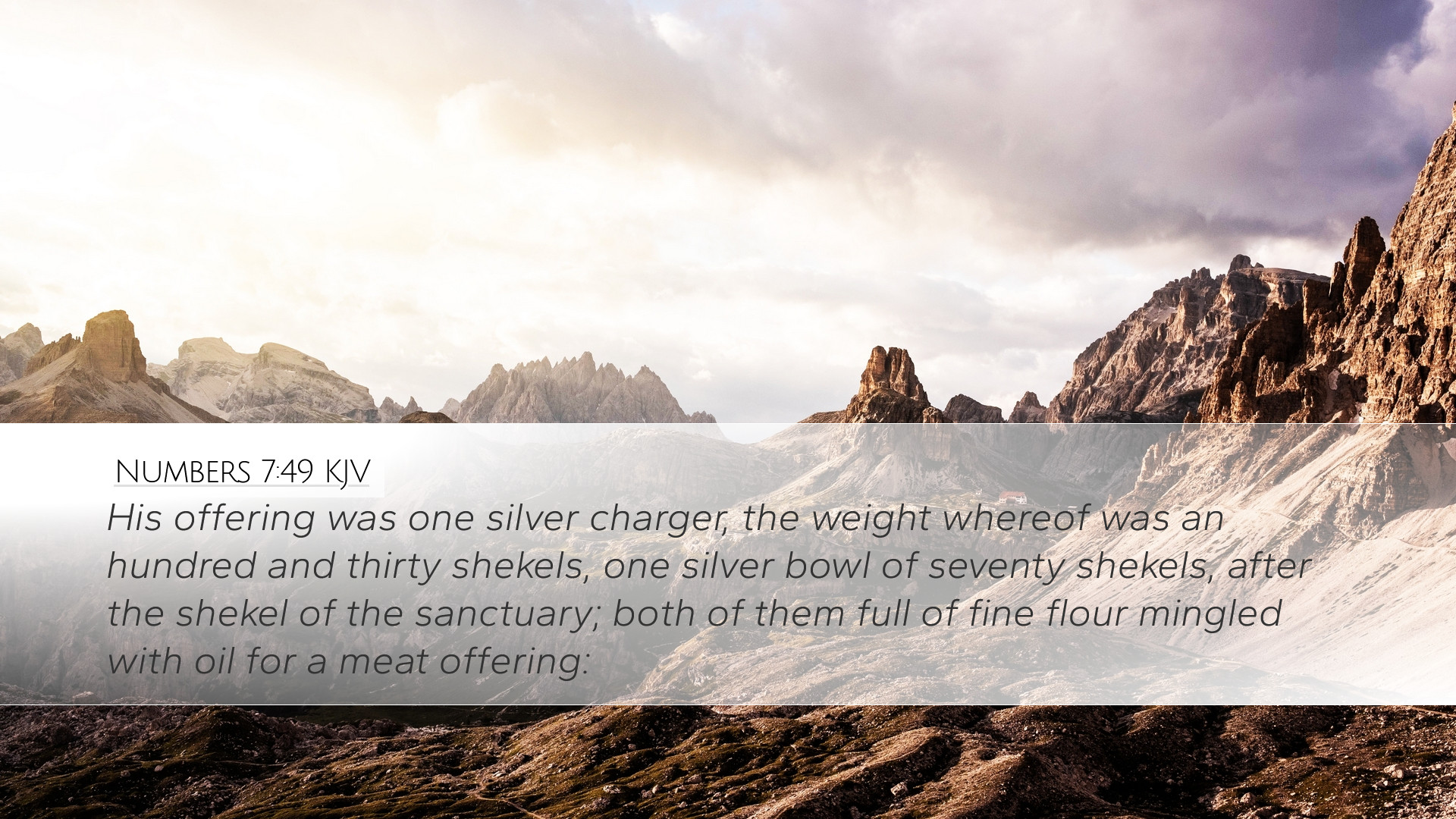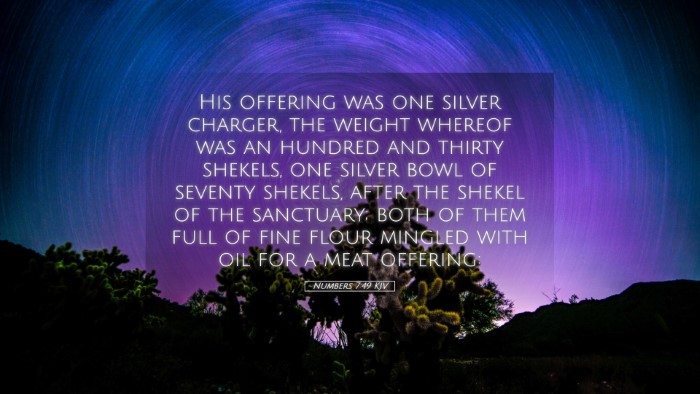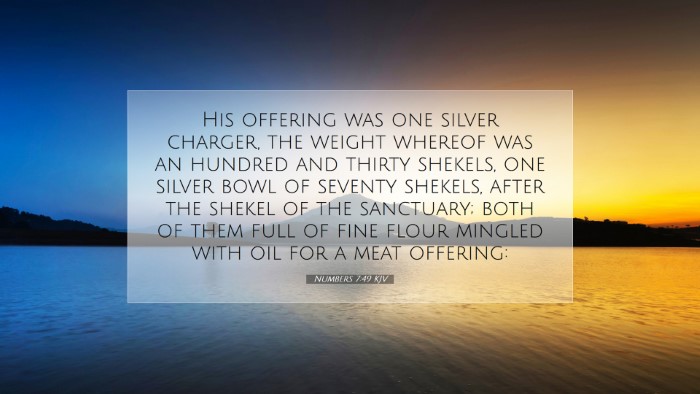Commentary on Numbers 7:49
Bible Verse: "His offering was one silver charger, the weight whereof was a hundred and thirty shekels, one silver bowl of seventy shekels, after the shekel of the sanctuary; both of them were full of fine flour mingled with oil for a meat offering." (Numbers 7:49)
Introduction
This verse from the Book of Numbers is part of a larger section that details the offerings made by the leaders of Israel during the dedication of the Tabernacle. Each leader brought forth unique offerings, symbolizing their commitment to the worship of God and the service of the community. In analyzing this verse, we take insights from esteemed commentators like Matthew Henry, Albert Barnes, and Adam Clarke.
Historical Context
The Book of Numbers captures the Israelites’ journey through the wilderness after their exodus from Egypt. The dedication of the Tabernacle as described in this chapter underlines the importance of worship and the role of leadership within the community. This setting is essential for understanding the significance of the offerings presented.
Understanding the Offerings
The offerings described here, including the silver charger and bowl, represented not just material gifts but also an acknowledgment of God's sovereignty and provision.
- Symbolism of Silver: Silver is often associated with redemption in the Bible. The leaders’ choice of silver reflects the value of redemption and the seriousness with which they approached the worship of God.
- Measurements and Standards: The specific weight of the offerings (130 shekels for the charger and 70 for the bowl) follows the established standards of the sanctuary, emphasizing the orderliness and reverence of the Israelites toward their God.
- Fine Flour and Oil: The inclusion of fine flour and oil in the offerings represents the essence of purity and the acknowledgment that all good things come from God. The flour symbolizes the sustenance necessary for life, while oil represents the joy and anointing that comes from the Holy Spirit.
Theological Insights
This verse carries rich theological implications that reflect the broader narrative of Israel's covenant with God. Below are some insights highlighted by Matthew Henry and others.
Leadership and Sacrifice
Matthew Henry points out that the leaders of Israel did not merely offer gifts but did so as a sign of their leadership responsibility. They were to set an example through their willingness to sacrifice for the spiritual well-being of the entire community.
His commentary emphasizes that true leaders should embody a lifestyle of sacrifice and devotion, reflecting Christ’s ultimate sacrifice for humanity.
God's Provision and Sovereignty
Albert Barnes observes that God’s instruction for the offerings reveals His desire for acknowledgment of His sovereignty. The specifics given in the offerings show that no aspect of worship is insignificant or unworthy of careful treatment.
These gifts act as a reminder that everything belongs to God, and leaders are simply stewards of His provisions.
The Role of Community Worship
Adam Clarke adds a communal aspect to this interpretation, highlighting how the offerings were not only for personal dedication but served to unify the community in worship. The act of giving was collaborative, symbolizing collective devotion and commitment to God.
This concept reinforces the importance of community in worship practices even today, as congregations come together to offer their gifts and praises to God.
Personal Application
For pastors, students, theologians, and scholars, Numbers 7:49 serves as a poignant reminder of the importance of leadership within the church's context, the value of sacrificial giving, and the acknowledgment of God’s provision.
- Leadership Responsibility: Leaders must assess their role and the weight of their offerings—how they lead by example and how their public and personal sacrifices impact the community.
- Cultivating Generosity: The teaching from this verse encourages a spirit of generosity within congregations. Like the leaders of Israel, Christians today are called to participate actively and joyfully in their community's worship.
- Reflecting on God’s Gifts: Individuals are reminded to consider their offerings, recognizing that every good gift, just like fine flour and oil, comes from God. This reflection can transform mundane acts of giving into profound acts of worship.
Conclusion
In conclusion, Numbers 7:49 encapsulates a rich tapestry of meaning regarding worship, leadership, and community sacrifice. The insights from public domain commentaries provide a robust framework for understanding the spiritual significance behind what may initially appear as dry historical data. Both within the historical context of Israel and the contemporary church, this verse remains a powerful testament to the devotion, responsibility, and communal aspects of serving God.


